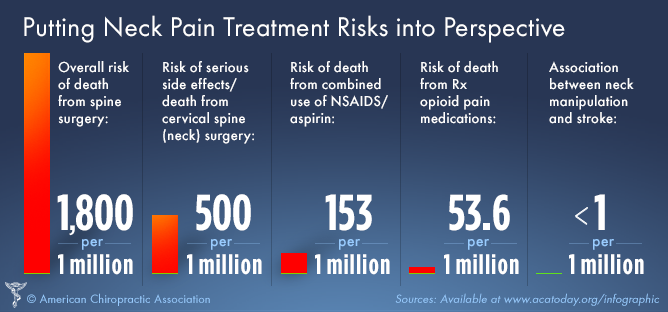The Impact Of Diet Plan On Pain In The Back Management: Foods To Incorporate And Foods To Leave Out
The Impact Of Diet Plan On Pain In The Back Management: Foods To Incorporate And Foods To Leave Out
Blog Article
Write-Up Produced By-Cochrane Guldborg
When it concerns managing your back pain, the food choices you make can considerably impact just how you feel on a daily basis. Think of being able to alleviate your pain just by changing what you eat. By understanding the role of nutrition in neck and back pain administration and knowing which foods to integrate or avoid, you can take positive steps in the direction of a healthier and extra comfortable way of living. The link in between nourishment and back health is extra extensive than you may recognize-- allow's explore how particular foods can either relieve or worsen your neck and back pain.
Relevance of Nutrition in Pain In The Back
Nutrition plays an essential function in managing pain in the back. Your diet can considerably affect swelling levels and overall pain degrees in your back. Eating a balanced diet regimen rich in nutrients like vitamins D and K, calcium, magnesium, and omega-3 fatty acids can help in reducing swelling and strengthen bones, which are vital for back wellness.
Furthermore, preserving a healthy weight with appropriate nourishment can reduce tension on your back, lowering the risk of pain in the back.
Additionally, specific nutrients like antioxidants located in vegetables and fruits can aid battle oxidative stress and anxiety and promote healing in the body, consisting of the back muscles and back.
On the other hand, taking in extreme amounts of processed foods, sweet drinks, and harmful fats can add to inflammation and weight gain, aggravating neck and back pain.
Foods to Consume for Back Wellness
To sustain a healthy and balanced back, incorporating nutrient-rich foods right into your everyday dishes is essential. Consisting of foods high in antioxidants like berries, spinach, and kale can help reduce inflammation in your back, reducing discomfort and pain. Omega-3 fats located in fatty fish such as salmon and mackerel have anti-inflammatory properties that can profit your back health and wellness.
Additionally, taking in please click the next page and seeds like almonds, walnuts, and chia seeds gives important nutrients like magnesium and vitamin E, which sustain muscular tissue feature and minimize oxidative stress. Integrating lean healthy proteins such as poultry, turkey, and tofu can aid in muscle repair work and maintenance, promoting a strong back.
Do not forget to include dairy or strengthened plant-based alternatives for calcium to support bone wellness. Finally, severe back pain with lots of water to keep your spine discs hydrated and functioning efficiently. By consisting of see this page -dense foods in your diet regimen, you can nourish your back and assistance overall back health and wellness.
Foods to Avoid for Back Pain
Go with staying clear of processed foods high in sugarcoated and trans fats when looking for relief from back pain. These types of foods can contribute to swelling in the body, which may intensify pain in the back. Say no to sweet snacks like candy, pastries, and sugary beverages, in addition to junk food things like hamburgers, fries, and fried hen that are frequently packed with trans fats.
Furthermore, steer clear of foods having high degrees of refined carbs, such as white bread, pasta, and pastries, as they can surge blood sugar level degrees and potentially aggravate inflammation in the body.
It's also wise to restrict your consumption of foods high in saturated fats, like red meat and full-fat dairy products, as they can add to inflammation. Refined foods like delicatessens meats, chips, and packaged snacks are commonly high in hydrogenated fats and must be consumed in moderation.
Conclusion
Finally, taking note of your diet and making clever food selections can have a substantial impact on managing pain in the back. By incorporating nutrient-rich foods like berries, fatty fish, nuts, and lean healthy proteins, and avoiding refined and sugary things, you can help reduce swelling and support overall back health. Remember, what spine hurts consume plays a critical role in just how you really feel, so see to it to prioritize your nutrition for a healthier back.
